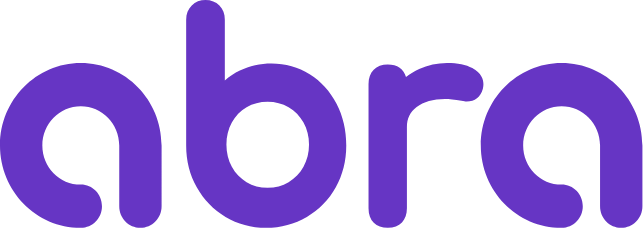Q:
Given the recent collapse of Luna and the price decline of other crypto assets, is the market contracting?
A:
We have seen a drop in liquidity for several lower-tier altcoins in the past few months. And, there has been a flight to safety in the crypto markets. That's reflected in the price of Ethereum and Bitcoin.
But Ethereum is getting faster network effects because of its growing utility in NFTs, stablecoins, DeFi, etc. It grows quickly, but as a result, it’s always going to be more volatile. Other altcoins — like Solana and Chainlink — are starting to see more usage and increased adoption. And it’s because they’re solving real problems.
If you're a game developer, you're probably not going to develop directly on Ethereum right now because it's just too expensive. Solana is not suited at this point for stablecoins because, in my opinion, it's not stable enough. But for games, it’s good.
Once this bear market works its way through the system, you’ll see all the hard work and innovation that tends to happen in these downturns bear fruit in the next three to four years.
Q:
So, is now a good time to innovate and bring new coins to market or develop new services?
A:
Oh, absolutely. This is the best time to innovate in crypto because you can't focus on price. You have no choice right now but to focus on value-add. For Example, at Abra, our Abra Capital Management Division started both a token fund and an early-stage equity fund exactly for this reason. Right now is the time to invest in early-stage projects.
People have had a healthy dose of reality, and they realize they have to prove their mettle before they can get high valuations for their new projects. In truth, crypto is late to the game because venture and private equity valuations have come down — much more so than crypto private markets. The crypto sector has not yet taken the hit and may not take as big of a hit, but it will take some hit.
Q:
Do you see different dynamics happening in other countries and regions around the world? Are real-world conditions affecting the development of crypto markets in different countries?
A:
Two things are clearly undeniable. The first is that interest in crypto has been significantly higher in markets where trust is a problem.
Look at the percentage of Bitcoin and Ethereum adoption and other cryptocurrencies in different countries. The countries where the people are at odds with their government lead the pack in terms of adoption. And if there is distrust of centralized authority, crypto makes a lot of sense.
The second thing that you cannot deny is — like it or hate it — the big test in El Salvador, which is still unproven, is getting a lot of attention from other developing market economies. Forty-five countries or so gathered in El Salvador to discuss Bitcoin — that’s unbelievable. It sends a message to the rest of the world that this may be a route to global adoption.
[What may be emerging is] a bifurcated model between high-net-worth investors hoarding Bitcoin and developing countries that cannot rely on the U.S. dollar as a reserve and who cannot issue a stable currency, and no one would trust them to do so. Bitcoin has become interesting.
Q:
How do you take all that on board while building a global crypto firm like yours? How do you make differentiated offerings based on different use cases, even in different countries around the world?
A:
To be a sustainable business in the cryptocurrency space, we have to be realistic about where the adoption is coming from. There are three camps globally. There are traders who will trade anything that's volatile and where they can make a profit. The second camp is hoarding crypto as the digital property of the future, and then we have the early adopters in developing markets. We’re focused on the camp that is high-net-worth investors early in the space and see the internet’s need for money as part of the future. We're committed to growing with that market and waiting for the other use cases to catch up.
About Abra
Abra is the leading global wealth management platform for crypto. Founded in 2014 by Bill Barhydt, the platform helps millions of users earn high yield on their crypto assets, trade over 100 different cryptocurrencies and borrow dollars against crypto holdings. Abra has processed over $1 billion in crypto-backed loans and has paid millions of dollars in interest payments to retail and institutional clients alike. Abra is headquartered in Silicon Valley with offices around the globe. For more information, visit https://www.abra.com/.
Company Information
Abra is based in California and backed by top VC firms, and is an all-in-one simple, secure app that allows you to trade over 110 cryptocurrencies, get 0% interest loans using your crypto as collateral and earn interest with up to 13% APY on stablecoins and 7.15% APY on bitcoin. Join nearly 2 million users by downloading Abra from the Google Play or Apple App store. Do it today and get $15 in free crypto once you fund your account. You came, you invested, now conquer. Abra – Conquer Crypto.
DISCLOSURE
Please note that our privacy policy, terms of use, cookies, and do not sell my personal information has been updated.
The leader in news and information on cryptocurrency, digital assets and the future of money, CoinDesk is a media outlet that strives for the highest journalistic standards and abides by a strict set of editorial policies. CoinDesk is an independent operating subsidiary of Digital Currency Group, which invests in cryptocurrencies and blockchain startups. As part of their compensation, certain CoinDesk employees, including editorial employees, may receive exposure to DCG equity in the form of stock appreciation rights, which vest over a multi-year period. CoinDesk journalists are not allowed to purchase stock outright in DCG.

:format(jpg)/cloudfront-us-east-1.images.arcpublishing.com/coindesk/35PQUM2OJJDLZK7EOKIU6C5OTE.png)
